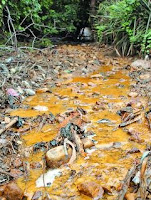Participation of priests in partisan politics would generate an environment of exclusion and could propagate violence in the society. This is the conclusion from the Central American bishops after their meeting in Ayagualo. They asked the clergy to stay out of partisan politics, and also refrain from instigating and initiating violence in the communities they live in.
The claim is that partisan politics would be destroying to the mandate of the priest as a figure for all of society. It would also hamper the proper identity and mission of the priests. The societal values of the priests should not be identified with certain political parties and it is not compatible to have both civil and religious power at the same time. Bishop Gonzalo de Villa from Guatemala claims that each person should have their own sphere of influence and interest.
Another important issue is that priests should be very careful in participating in protests on behalf of communities. Such type of participation means that they claim the rights of someone at the expense of others. It has been questioned whether it is right for the priests to participate in protests against dam and mining projects on behalf of communities. This kind of participation can be viewed as violating other persons` rights when these persons are hurt, and that is contradictive to the values of the priests and the clergy.
However, the priests have a plight to protect the most vulnerable in the society, so every case should be subject to consideration and analysis. Nevertheless, in every case it should be reviewed whether the protests are politically influenced or not before taking part.



